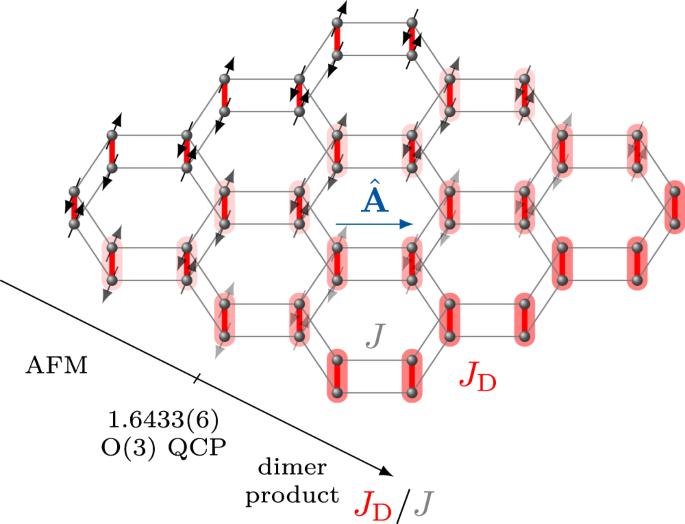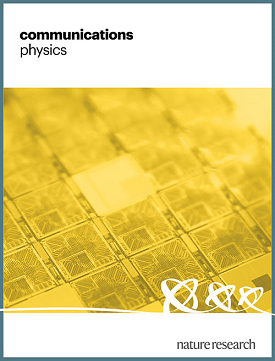Cavity-renormalized quantum criticality in a honeycomb bilayer antiferromagnet
IF 5.4
1区 物理与天体物理
Q1 PHYSICS, MULTIDISCIPLINARY
引用次数: 0
Abstract
Strong light-matter interactions as realized in an optical cavity provide a tantalizing opportunity to control the properties of condensed matter systems. Inspired by experimental advances in cavity quantum electrodynamics and the fabrication and control of two-dimensional magnets, we investigate the fate of a quantum critical antiferromagnet coupled to an optical cavity field. Using unbiased quantum Monte Carlo simulations, we compute the scaling behavior of the magnetic structure factor and other observables. While the position and universality class are not changed by a single cavity mode, the critical fluctuations themselves obtain a sizable enhancement, scaling with a fractional exponent that defies expectations based on simple perturbation theory. The scaling exponent can be understood using a generic scaling argument, based on which we predict that the effect may be even stronger in other universality classes. Our microscopic model is based on realistic parameters for two-dimensional magnetic quantum materials and the effect may be within the range of experimental detection. The authors employ Quantum Monte Carlo simulations to study the scaling behavior of the magnetic structure factor and other observables in a 2D quantum critical magnet coupled to a single cavity mode. They find that while the quantum critical point remains unchanged, critical fluctuations are significantly enhanced and a fractional scaling exponent deviates from expectations based on perturbation theory.

蜂窝双层反铁磁体的空腔重整量子临界性
在光腔中实现的强光-物质相互作用为控制凝聚态物质系统的特性提供了一个诱人的机会。受空腔量子电动力学实验进展以及二维磁体制造和控制的启发,我们研究了与光腔场耦合的量子临界反铁磁体的命运。利用无偏量子蒙特卡洛模拟,我们计算了磁结构因子和其他观测值的缩放行为。虽然单个空腔模式不会改变位置和普遍性等级,但临界波动本身却得到了显著增强,其缩放指数超出了基于简单扰动理论的预期。我们可以用一个通用的缩放参数来理解该缩放指数,并据此预测在其他普遍性类别中这种效应可能会更强。我们的微观模型基于二维磁性量子材料的现实参数,该效应可能在实验检测范围之内。作者利用量子蒙特卡洛模拟研究了与单腔模式耦合的二维量子临界磁体中的磁结构因子和其他观测值的缩放行为。他们发现,虽然量子临界点保持不变,但临界波动显著增强,而且分数缩放指数偏离了基于扰动理论的预期。
本文章由计算机程序翻译,如有差异,请以英文原文为准。
求助全文
约1分钟内获得全文
求助全文
来源期刊

Communications Physics
Physics and Astronomy-General Physics and Astronomy
CiteScore
8.40
自引率
3.60%
发文量
276
审稿时长
13 weeks
期刊介绍:
Communications Physics is an open access journal from Nature Research publishing high-quality research, reviews and commentary in all areas of the physical sciences. Research papers published by the journal represent significant advances bringing new insight to a specialized area of research in physics. We also aim to provide a community forum for issues of importance to all physicists, regardless of sub-discipline.
The scope of the journal covers all areas of experimental, applied, fundamental, and interdisciplinary physical sciences. Primary research published in Communications Physics includes novel experimental results, new techniques or computational methods that may influence the work of others in the sub-discipline. We also consider submissions from adjacent research fields where the central advance of the study is of interest to physicists, for example material sciences, physical chemistry and technologies.
 求助内容:
求助内容: 应助结果提醒方式:
应助结果提醒方式:


